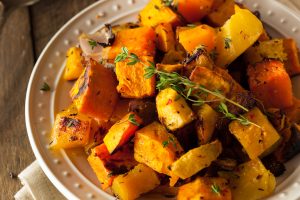
In a world where we’re more aware of our general health, people are constantly looking to make healthier choices in the kitchen, and much of this means swapping out the cooking oil you’re using. Where there are several common cooking oils that are used, such as sunflower and vegetable oil, they’re not necessarily the healthiest option. With this in mind, here’s everything you need to bear in mind when looking for a healthier oil to cook with.
Know which oils are best for different cooking methods
In order to make the healthiest choice when it comes to cooking oil, it’s important that you know which oil to use for different cooking methods. Where you might think that one oil for everything is the hea;thiest way to go, you might actually be mistaken. Cooking oils each have different smoke points, so this makes some oils more suitable for cooking than others.
That being said, there are some oils that are better for light cooking and others that are best for frying, for example. Where we don’t expect you to have a cupboard full of different cooking oils, you might be able to find one or two that works for you and your lifestyle. With this in mind, we’ll take you through the different oils that should be used, and when.
The best oils for oven-cooking & stir-frying
- Almond oil – having a very distinctive flavour, it can be quite an expensive oil to buy, but it healthy when used in moderation
- Hazelnut oil – perfect for delivering a bold, strong flavour, hazelnut oil is perfect for frying, roasting and baking, even at higher temperatures
- Sunflower oil – high in monounsaturated fats, this is a healthy oil that can be used for most cooking methods, but in small amounts
- “Light” or “refined” olive oil – when oil is referred to as “light” it’s often talking about its colour rather than it being low in fat or healthy for you, so approach these light olive oils with some caution if you’re looking for a healthy cooking oil
- Avocado oil – known purely for its sweet aroma and its “good fat” content, this oil is good for a wide variety of cooking methods, but it can be difficult to come by
The best oils for light sauteing, making sauces & low-heat baking
- Hemp oil – high in omega-3 acids, this is a healthy choice for sauteing and low-heat baking and roasting, although it needs to be kept refrigerated
- Corn oil – this needs to be consumed in small quantities, because it can be unhealthy in excess amounts, mainly thanks to how rich it is in omega-6 fatty acids
- Pumpkin seed oil – a form of vegetable oil, it contains alpha-linolenic acid, which is a form of healthy omega-3 fatty acids Sesame oil – this has a rich and nutty flavour and is best kept in the fridge
- Soybean oil – healthy in small doses, soybean oil is rich in omega-6 fatty acids and it’s also recommended that you keep this stored in the fridge
- Virgin coconut oil – again, this should be used in moderation as it contains lauric acid, so much like the other oils in this list, you should refrain from using this in large quantities
The best oils for salad dressing, dips & marinades
- Flaxseed oil – a source of alpha-linolenic acid, which is a form of omega-3 fatty acids, this is a healthy oil for dressings, dips and marinades
- Walnut oil – containing omega-3 fatty acids, much like the flaxseed oil, this too is a healthy oil for use in dips, marinades and dressings
- Wheat germ oil – an oil that’s rich in omega-6 fatty acids, it’s only considered to be healthy in small quantities and must be kept refrigerated
Be aware of the properties that different oils have
Vegetable oil
Olive oil (extra virgin)
Olive oil (extra light)
Peanut oil
Sesame oil
Sunflower oil
Rapeseed oil
Which cooking oil is the healthiest?
In conclusion, and having been through the different properties that each cooking oil has to offer, it’s easy to see that the healthiest oil to choose for cooking is either olive oil or rapeseed oil. There are several different uses for olive oil, from roasting and baking to frying and dipping. Olive oil is arguably the most versatile cooking oil on the market, but it can prove to be quite expensive in comparison to other alternatives.
This is why many people opt for cheaper cooking oils, but they’re not always the healthiest options. Rapeseed oil, on the other hand, is both affordable and healthy, when compared to vegetable and sunflower oil – other popular cooking oil choices. To summarise, if you’re looking for a healthy cooking oil, then rapeseed oil or good quality olive oil would be the way forward.





